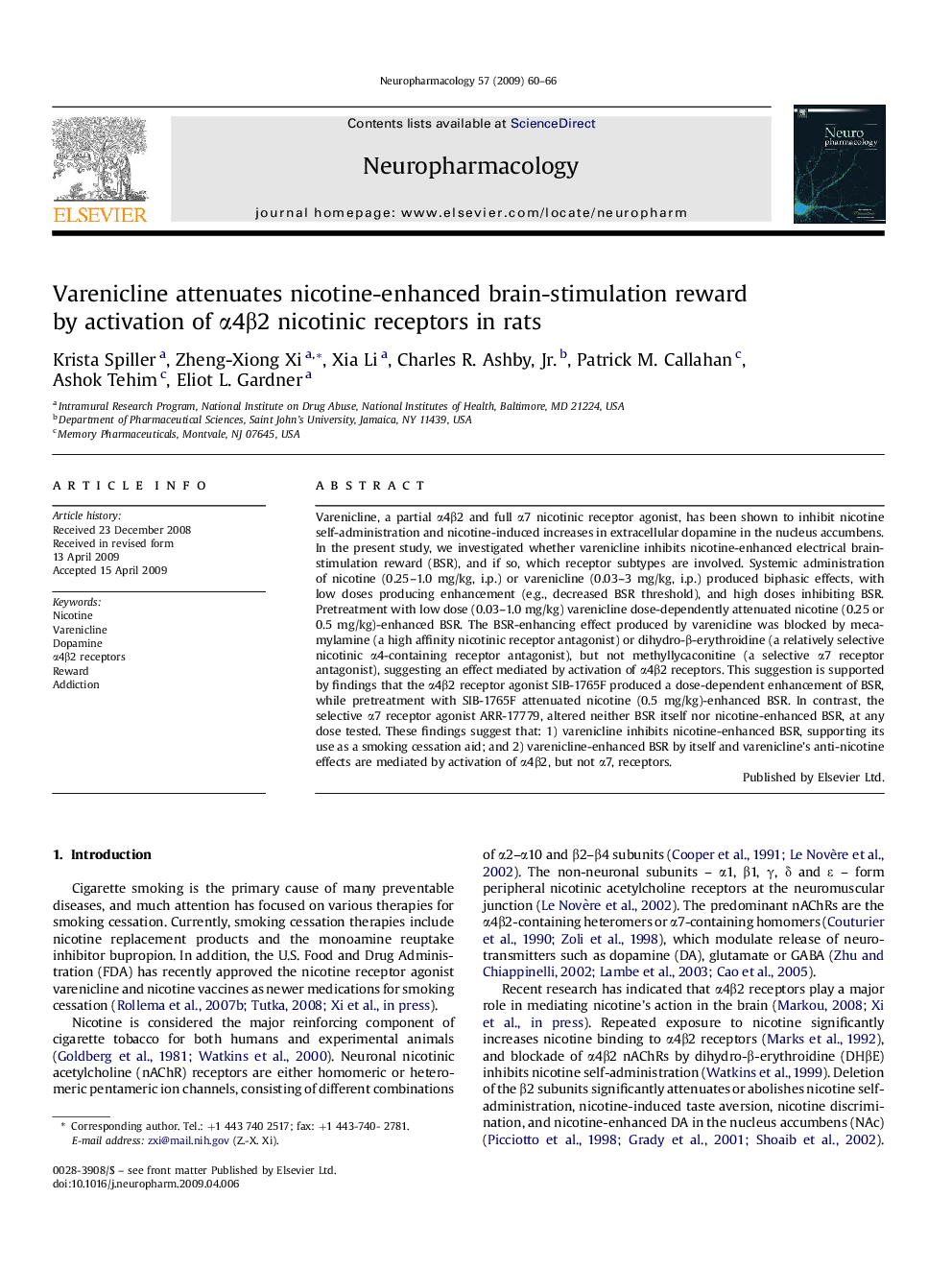| Article ID | Journal | Published Year | Pages | File Type |
|---|---|---|---|---|
| 2494384 | Neuropharmacology | 2009 | 7 Pages |
Varenicline, a partial α4β2 and full α7 nicotinic receptor agonist, has been shown to inhibit nicotine self-administration and nicotine-induced increases in extracellular dopamine in the nucleus accumbens. In the present study, we investigated whether varenicline inhibits nicotine-enhanced electrical brain-stimulation reward (BSR), and if so, which receptor subtypes are involved. Systemic administration of nicotine (0.25–1.0 mg/kg, i.p.) or varenicline (0.03–3 mg/kg, i.p.) produced biphasic effects, with low doses producing enhancement (e.g., decreased BSR threshold), and high doses inhibiting BSR. Pretreatment with low dose (0.03–1.0 mg/kg) varenicline dose-dependently attenuated nicotine (0.25 or 0.5 mg/kg)-enhanced BSR. The BSR-enhancing effect produced by varenicline was blocked by mecamylamine (a high affinity nicotinic receptor antagonist) or dihydro-β-erythroidine (a relatively selective nicotinic α4-containing receptor antagonist), but not methyllycaconitine (a selective α7 receptor antagonist), suggesting an effect mediated by activation of α4β2 receptors. This suggestion is supported by findings that the α4β2 receptor agonist SIB-1765F produced a dose-dependent enhancement of BSR, while pretreatment with SIB-1765F attenuated nicotine (0.5 mg/kg)-enhanced BSR. In contrast, the selective α7 receptor agonist ARR-17779, altered neither BSR itself nor nicotine-enhanced BSR, at any dose tested. These findings suggest that: 1) varenicline inhibits nicotine-enhanced BSR, supporting its use as a smoking cessation aid; and 2) varenicline-enhanced BSR by itself and varenicline's anti-nicotine effects are mediated by activation of α4β2, but not α7, receptors.
